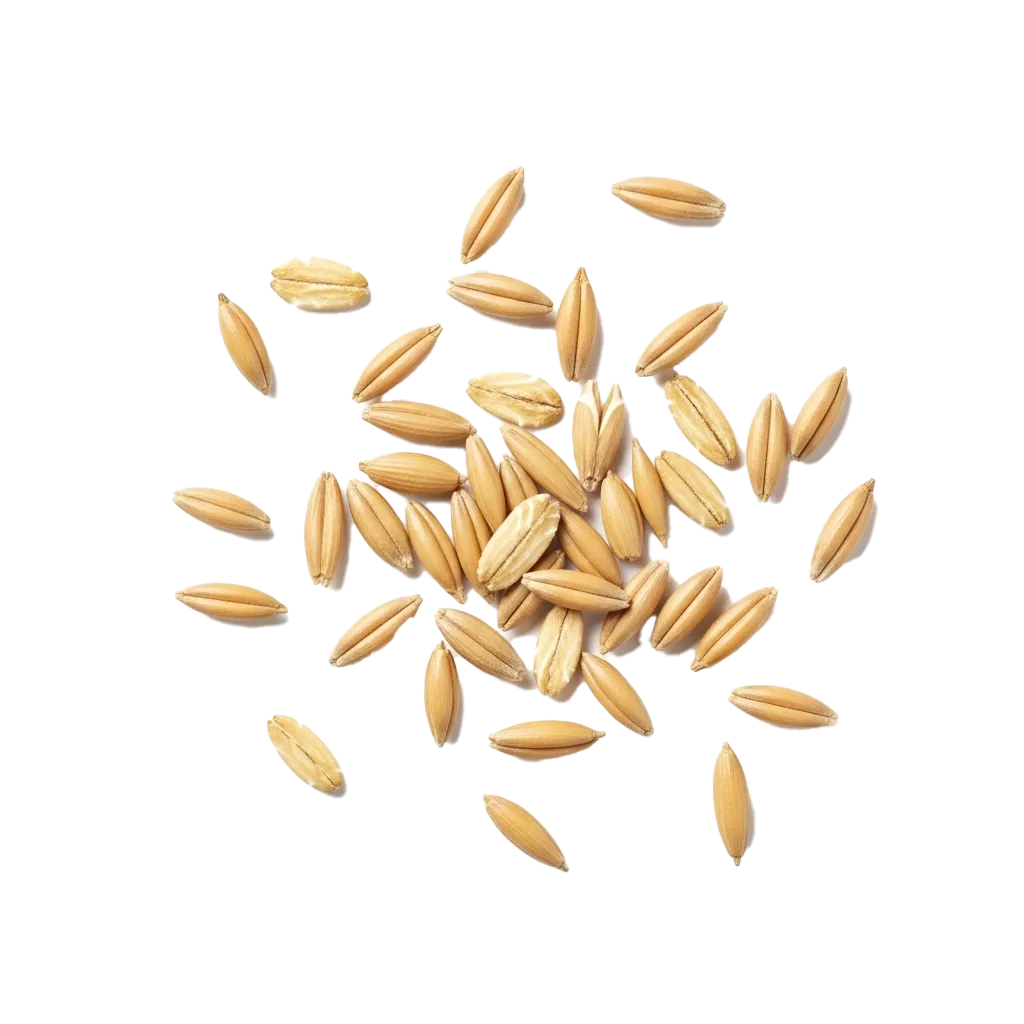№ 5 Oat Flour
OAT
FLOUR

Remix
Ranking
#5
Net
Carbs
17g
Ratio To
White Flour
1:1.3
Despite being made from oats, oat flour is naturally gluten-free when sourced from certified gluten-free oats, as oats don’t contain gluten proteins but may be cross-contaminated during processing. Oats are technically a cereal grain, but they’re often well-tolerated by people with gluten sensitivities (though not by those with celiac disease unless specifically certified). The flour is made by grinding whole oats into a fine powder, preserving most of the grain’s nutritional value.
Oat flour is soft, mild, and easy to digest due to its naturally occurring enzymes and fiber structure. It’s rich in complex carbohydrates, providing steady energy without the spikes and crashes of refined flours. One of oat flour’s standout features is its high beta-glucan content—a type of soluble fiber known to support heart health, improve cholesterol levels by binding to cholesterol in the digestive system, and help regulate blood sugar by slowing glucose absorption. This fiber also acts as a prebiotic, nourishing the gut microbiome and promoting beneficial bacteria growth.
Oat flour contains a modest amount of protein (about 4 grams per quarter cup) with a good amino acid profile, and is a great source of magnesium for muscle and nerve function, phosphorus for bone health, and B vitamins including thiamine and niacin for energy metabolism. It also provides zinc, iron, and manganese. The flour brings a creamy, slightly sweet flavor to baked goods and can be used in combination with other flours to improve texture and moisture retention.
Flavor Profile
Mild, slightly sweet, and nutty with a creamy, wholesome taste that adds tenderness to baked goods.
Best Uses
Perfect for pancakes, muffins, cookies, and quick breads where it adds moisture and tenderness. Works well blended with other gluten-free flours for improved texture. Great for thickening smoothies and adding fiber to breakfast bakes.
Oat Flour
Buy
Oat flour contains beta-glucans, a special fiber that helps feed good gut bacteria. It’s not just heart-healthy-it’s gut-friendly, too.